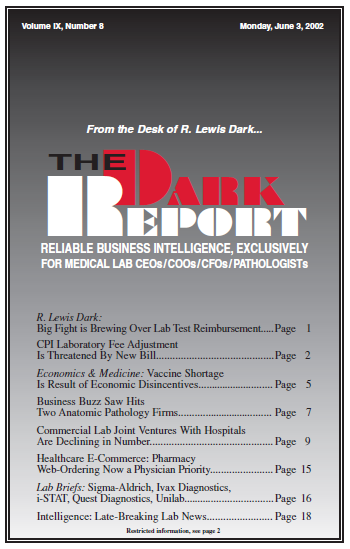CEO SUMMARY: Once again, the laboratory testing industry has been singled out as a healthcare “whipping boy” by Congressional aides. In working to develop the next federal budget, legislators again propose to deny annual CPI price updates for laboratory tests. This won’t be anything new, since only once in 14 years has Congress funded a …
CPI Lab Fee Adjustment Threatened by New Bill Read More »
To access this post, you must purchase The Dark Report.


